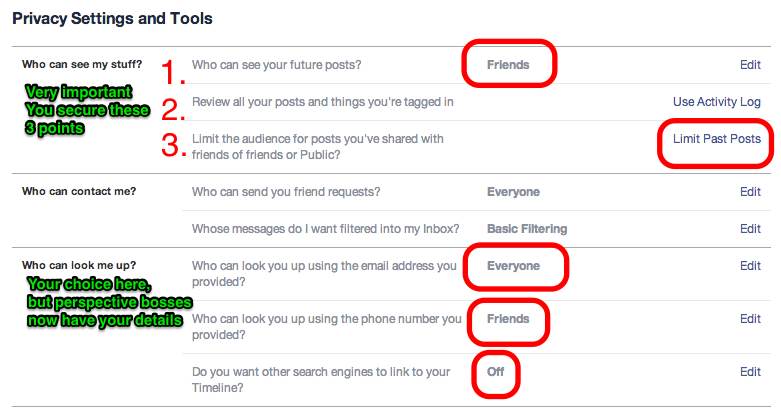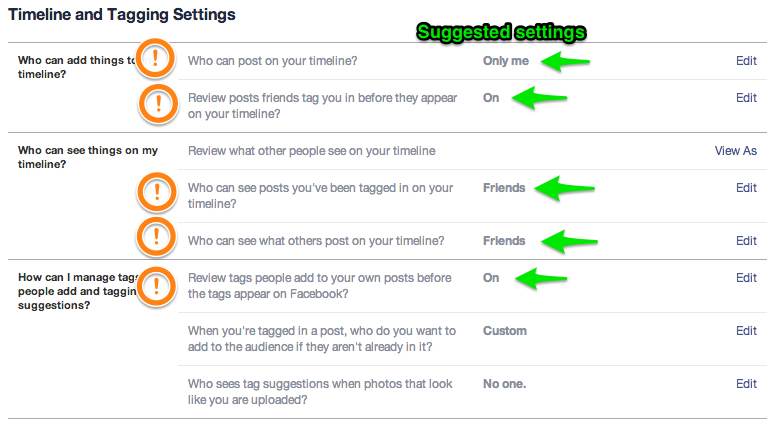What Does a Superyacht Stewardess Do?
Imagine a seven star hotel with all the rooms occupied, now imagine all the things that have to be done at that hotel to ensure that the guests are satisfied with the service. Now put that same hotel to float in the ocean far off the land.
The entire hospitality demands from the high maintenance guests on this yacht are the responsibility of the stewardess. Just to give you a picture of the magnitude of responsibility, try and read all these tasks after taking in just one breath, Here we go:
Housekeeping, silver polishing, bed making, serving drinks, serving food, setting and decorating the table for every meal, clearing the table .Smile at guest’s even though you have averaged 6 hours per night for the last 3 months.
Folding napkins, waiting tables, room service, dishwashing, shoe polishing, directing guests, doing laundry, stain removing, party planning, decorating party venues or locations such as the house, villa or the beach! Babysitting, public relations…and that is not even half of the things that the Super yacht stewardess has to do.
It is as if the different roles carried out by staff at a hotel are compressed and bestowed upon a hand full of interior staff, to do for about 12 guests.
Typically a leader such as the captain or Chief Stewardess, will make a habit of reminding the crew that in performing their duty they should remember there are no problems, only solutions. It is with that in mind that the stewardesses execute their duty with a smile on their face and a lot of determination.
A typical superyacht stewardess, divides their roles into service and housekeeping. Depending on the size of the yacht, the interior manager or chief stewardess will be in charge of allocating the duties and setting the interior schedule.
She/ he is always aware that things may change so you should adapt the same flexible attitude as your department head.
Here is a list of some of the duties that a superyacht stewardess must carry out:
Before the guests arrive on the yacht, you are expected to ensure everything is in order, the rooms are clean and nit, the bathrooms are in perfect sanitary condition, the beds are well made and any other necessary preparation needed.
When the guests arrive, you will be expected to meet them at the entrance and then act as a bellboy or person to help with their luggage as you escort them to their cabin. Open the door for them and help them get settled. This could also mean you unpack their luggage and set it up in the wardrobes.
A part of helping them get settled you will need to familiarize them with the yacht, where they can find whatever they need and bring to them what may be lacking say an extra towel or any other special need.
You are expected to ensure the tables are set for whatever meal of the day is going to be served, then you will provide an expert service of both food wine and other beverages.
You should also be able to provide service, which means you can balance plates on your hands while walking through tight passageways on a rocking boat.
The chief stewardess should also coordinate with the galley about special needs of the guests.
You will also at some point be called upon to act as the bar person, serving the drinks behind the bars and displaying expert knowledge about the different wines and cocktails.
Just as a reminder, all this MUST be carried out with the utmost observance of etiquette and hospitality to the guest’s enjoyment and with a smile.
After service dishes need to be washed and you may be called upon to help out in the kitchen to clean up the dishes.
As part of housekeeping, you are expected to do the laundry for the guests and take care of any clothing that may need special care, this requires expert knowledge of the different fabrics and how to deal with them.
Note that a number of guests on a yacht have a lot of unique fabric and you need to know about the care for them even without them having to tell you: basic knowledge of Cotton, silk, linen, microfiber, wool, rayon and leather will be an asset in this department. If you are unaware, please check with the chief stewardess and she will advise you accordingly.
You will be expected to take care of the daily cleaning of the yacht. This ranges from the guest’s bedrooms right up to the deck. So that the entire yacht is spotless and the decorations are polished, straight and safe.
As the guests prepare to go on tour when the yacht docks, as a superyacht stewardess you are expected to assist them whenever possible. This means having good clear communications with other departments which will ensure that the guests have drinks, snack and towels if needed. Further, the chief stewardess, may be expected to provide them with information that will help them plan their tour and visit particular interests.
If there are any special functions, parties, themed dinners and the like, you will take part in preparing the venue for that function, decorating and arranging the place as well as ensuring the drinks and food necessary are available.
At any point you may be called upon to help out in any other task as directed by the Chief Stewardess or the captain. Safety is one of those roles that may come up at just about any time and you will be expected to take care of the safety of the guests and your own as well. These safety duties should be well practices and you will take direction from the captain or chief officer.
There are also responsibilities that may not quite be under job description but you should execute like, taking care of your appearance. Remember this is a seven star service, you need to look the part even if you are going to be cleaning and washing. It really is simple, be clean, be smart, look pleasant and smell good.
What does a superyacht stewardess do without guests on board?
In the last article we discussed what a superyacht stewardess does when guests are on board: What does a superyacht stewardess do? (Insert link) For this article we will discuss what a superyacht stewardess does without guest on board.
To the outsider, it seems like a superyacht stewardess lives a life of luxury with everyday being like an all-expense paid trip, seeing the world in its entire splendour. But it is not until you have read the job description of a superyacht stewardess that you may get the real picture of what they do.
For many, it is when the guests leave, that the hard work begins. Detail cleaning, creating and maintaining inventories and carrying out periodical maintenance work; which is what is required to keep this magnificent 7 star floating hotel (superyacht) shinning like it should.
The following article is written as a general guide. Obviously this will change due to the size of yacht and available resources. Under the guidance of the chief stewardess who is responsible for the running of the interior department, the superyacht stewardess will carry out the following duties:
Daily time schedule:
The daily time schedule is very different from the time schedule on charter. A typical day may begin at 0800 and conclude at 1700.
This is a typical “off charter” day, however, it is important to note that the time will vary due to the amount of work that needs to be done, or the location which you are in (i.e., some boatyards have specific work hours).
Crew mess duties:
The crew mess falls under the responsibility of the interior department and is maintained whilst on charter as well as off charter.
Whilst all crew members are expected to respect this area by cleaning up after themselves, the stewardesses will detail clean the area, as well as restock the fridges and cupboards coffee machine and other equipped.
An example of some other duties may include:
- Clean fridge handles and wipe down the front of the fridge
- Clean inside and out of the microwave
- Clean all surfaces/wipe walls, check for prints
- Vacuum and mop the floors
- Vacuum crew cabins when vacuuming crew mess
- Vacuum sofas (crumbs collect in the creases)
- Tidy magazines and newspapers
- Restock snacks
- Wipe down TV screens and windows
- Clear any items that don't belong in crew mess and place in a basket to be removed from boat after 24 hours if items not retrieved
- Clean front of dishwashers and inside when necessary
- Restock cereals
- Fill napkin paper towel holder
- Check butter and clean butter dish if necessary
- Throw away any leftovers in the fridge
- Clean sink and neaten under sink
- Vacuum floor/stairs
- See next page for Monday detail duties
- Fill printer with paper
Crew cabins are usually maintained by each individual crew member, however, during down time crew changes may occur. In this instance the interior department will detail clean, the crew cabin and prepare it for the new crew member’s arrival.
This is also a time when the captain’s cabin will get a detail clean if he so wishes.
Housekeeping:
The chief stewardess will have a list of projects that will need to be completed before the next charter. An example of a periodical project may be having the carpets and furniture professionally cleaned or re-organising the DVD’s on board.
Other duties on this list may include:
- Detailed cleaning of the guest cabins
- Care and protection of valuable items on-board as well as surfaces, artworks, crystal, linens, woodwork, marble and china.
- Maintain and detail clean of all equipment on board. This is done under the guidance or with the engineer.
-
- Equipment includes:
-
- AC units,
- Washers
- Dryers
- Refrigeration
- Vacuum cleaners
- AC units,
- Equipment includes:
- Detail clean the office (with the captain's permission)
- Detail clean the pantry’s and restock accordingly
Stock control:
This can be quite a large undertaking as it involves all aspects of the interior department such as:
- Crew uniform
- Wine
- Spirits
- Crew toiletries and supplies
- Guest toiletries and supplies
- Bed linen
- Crew linen
- Guest snacks (coordinated with the chef)
- In fact, all aspects of a hotel which you touch, see and use.
Carry out safety drills:
This is a fabulous time to carry out very important safety drills. This is normally coordinated by the chief officer and captain.
Each crew member is allocated a task in the event of an emergency. The interior department is normally responsible for:
- The safety of the guests
- Collecting extra food, water and blankets
- First aid (if so qualified)
- General assistant
As you can see a superyacht stewardess is one busy bee, however, you will find that different superyachts may have other duties and responsibilities added to the above duties. Further, you can see from the above article that the superyacht stewardess, must be a well-rounded individual who is knowledgeable in many areas of hospitality.
What Does a Superyacht Stewardess Do During a Refit Period?
Previously we discussed “What Does a Superyacht Stewardess Do”? And “What Does a Superyacht Stewardess Do Without Guests On Board”? This article discusses What Does a Superyacht Stewardess Do During a Refit Period?
As noted in the above articles, as a super yacht stewardess your duties are not limited to surpassing guest expectations whilst on board, you are likewise responsible for taking care of the inside of the yacht with additional crew duties to manage.
It is important to identify “What is a refit period” or commonly known as a yard period. This is when the superyachts goes into a shipyard for an assortment of required work. An example of such works, may include, but are not limited to the following:
- Warranty work
- Maintenance work
- Repair work
- New paint
- An Interior refurbishment
The planning for the yard work would have commenced month’s earlier with the creation of two lists. All department heads would have been instructed to create a comprehensive list of the “necessary work” and “desired work “or “wish list” of what they would like to be seen done.
It is then up to the owner of the yacht, the captain and or management team, to agree upon the primary list (work that is required) and the secondary list (the wish list) and begin to plan for the refit period.
Things in the planning, may include, but are not limited to the following:
- Where is the yacht going to be refitted
-
- Is crew accommodation needed?
- Are extra crew cars needed?
- How many containers are needed (if any)?
- Is crew accommodation needed?
- When will this occur?
- Budget and timeline planning?
- Crew holidays (if permitted)?
- Crew training (if permitted)?
The crew will be on holiday, training or may have resigned from their position on board. Extra help may be needed on deck, in the galley or in any other department that requires extra help. Further be prepared for the unexpected, even the best planned schedule is at the mercy of many unpredictable situations and “out of hand issues”.
As a superyacht stewardess, you may not be responsible for the planning of the yard period, however you will be required to work your best under the guidance of the Chief Stewardess. Your job description may vary a little in this instance, depending on what is on the planning schedule.
A typical day may begin at 0800 and end at 1730, however this depends largely of the work hours of the shipyard and if there are any limitations in place.
For a superyacht stewardess your day in the yard may begin with your regular morning duties. This includes crew mess duties and laundry beginning at 0800. If you are living in rented accommodation, then you may be required to carry out similar functions with a flexible attitude, i.e. getting used to the logistics of how to go about your duties in a different location.
All other meals and associated crew duties will be coordinated with the chief stewardess and the chef to make sure all of the crew is accommodated for.
Next the chief stewardess will have a planned schedule for the interior department. Things on this list may include, but are believe me when I say “are not limited to” the following:
- Covering all soft furnishings
- Protecting all fragile and valuable items
- Removing curtains for dry cleaning
- Removing furniture in which case who is preparing the furniture to be moved and who is helping to move it
- Covering fine art work
- Cleaning, maintaining and protecting areas worked on inside the yacht
- If things are being removed from the yacht, then things to consider may be
-
- Who is preparing it
- Where is it going
- How is it being stored
- Is it being stored in an organised fashion?
- Who is preparing it
- Assisting the chief stewardess with inventory control and updates of all guest amenities, alcohol, linen, crockery, and crystal
- Sort out and “condition check” guest table linen
- Assist the chief stewardess to prepare a shopping list of new bespoke pieces for the interior for the owner's approval (if required)
- Issuing contractors with shoe protection and drop cloths if needed
- Reorder and sorting crew uniform
- Checking crew bed linen, pillows, duvets, cutlery, glasses and crockery and re-ordering if needed
- Detail cleaning cabins
- Detail cleaning the crew mess
- Detail cleaning the laundry and storage rooms
- Putting things back on the yacht
- Detail cleaning and preparing for the shipyard departure
From Stu: That is an amazing and in depth description of what your role is and duties on a superyacht. Be sure to follow more of Kylie’s posts and insights for stewardesses over at The Stewardess Bible. Visit her website and follow The Stewardess Bible on Twitter, Facebook and Pinterest.
-
Superyacht Deckhand Job: Everything you need to know about what you are going to be doing when you land your first job!
-
The exact guide on how to enter the Superyacht industry as new crew
-
Dont get caught with your pants down on Facebook
-
Why new crew to yachting must network their way into a job
-
Why new crew should start their yachting career by staying in a Crew House first
-
Why your Superyacht CV should be like a first date















 RSS Feed
RSS Feed
